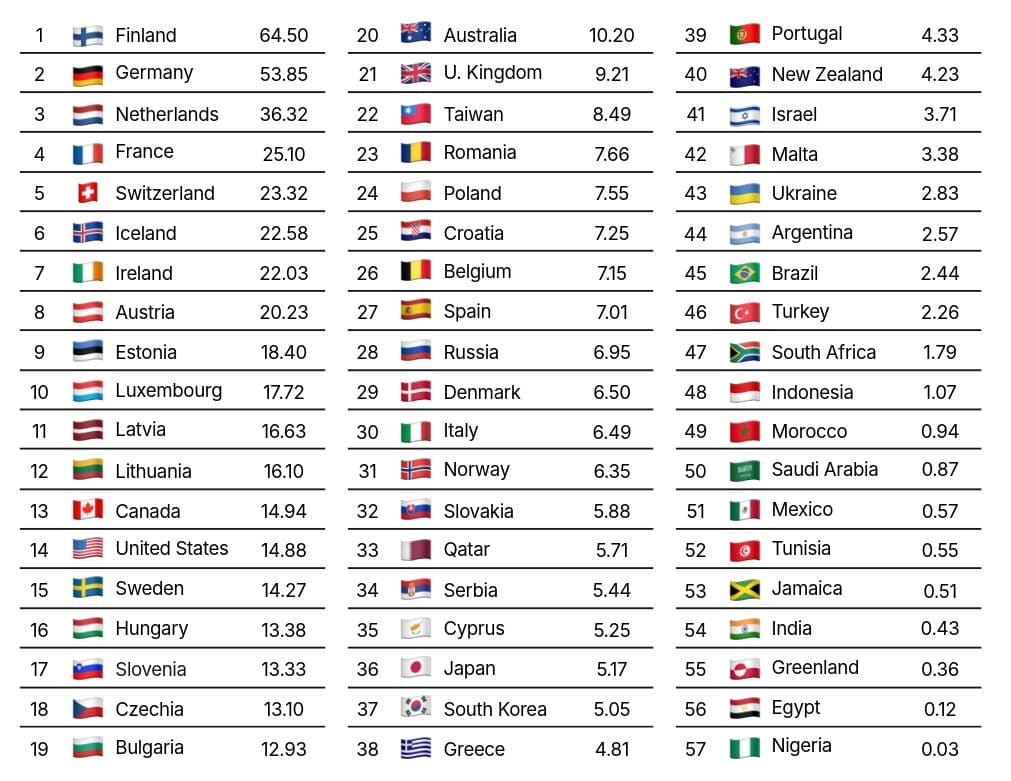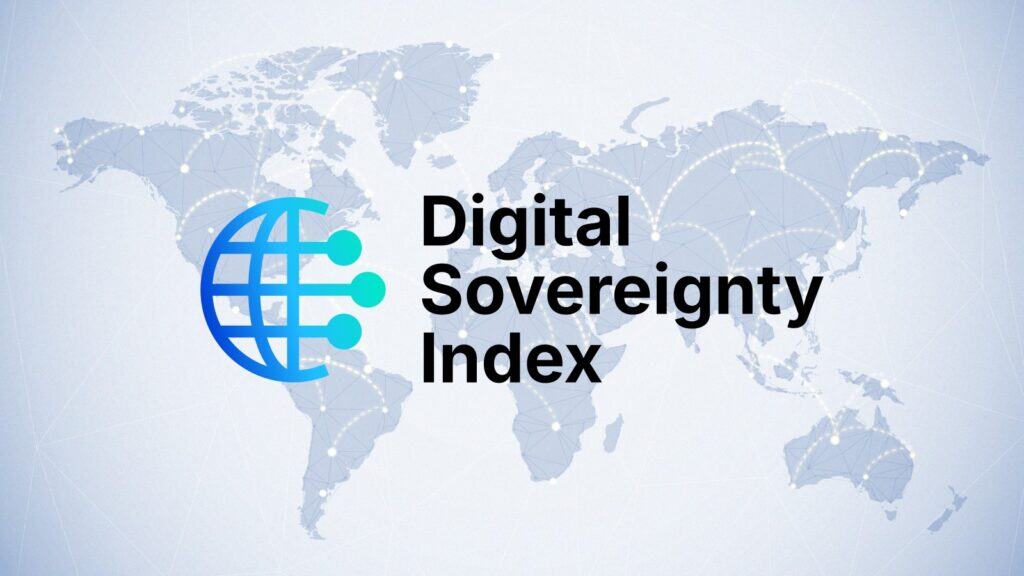In a very interesting new initiative, Nextcloud, the company behind a free and open-source software suite that lets you set up your own private cloud storage and collaboration platform, just dropped its first-ever Digital Sovereignty Index.
If you’re new to the topic, “digital sovereignty” means the right and the ability for a country, organization, or even an individual to run critical digital services (independently of Big Tech) on infrastructure they control, under rules they set, so they stay in charge of their own digital presence. Or, to put it even more simply, think self-hosting.
This new Nextcloud initiative ranks nearly 50 countries based on actual usage of self-hosted collaboration tools like file sharing, video conferencing, and project management platforms across roughly 7.2 million servers worldwide. The results are more than interesting.
Finland (the homeland of Linux creator Linus Torvalds) is the undisputed leader in digital sovereignty, scoring 64.5 on the DSI. Germany (53.85) and the Netherlands (36.32) rounded out the top three, showing strong adoption among individuals and small businesses.

The EU average lands at a modest 16.31 points. France (25.1), Austria (20.23), and Switzerland (23.32) hover in the middle of the pack, but the UK (9.21), Spain (7.01), Italy (6.49), and Belgium (7.15) all trail badly.
But even though Finland sits comfortably at the top of the Digital Sovereignty Index, its Nordic neighbors aren’t keeping pace. Sweden is all the way down in 15th place with 14.27—just a hair below the EU average—while Denmark (6.50) and Norway (6.35) find themselves near the bottom of the rankings.
According to the data, Canada posts a score of 14.94 while the United States lands just a whisker lower at 14.88. Those figures slot the two neighbors into 13th and 14th place out of 50-plus countries—above the UK and most of southern Europe, yet well behind the EU mean of 16.31.
The reason? The US and Canada still lean heavily on hyperscale cloud providers headquartered in North America. That comfort level translates into fewer visible self-hosted collaboration servers—precisely the metric that the DSI counts. In other words, Amazon and Microsoft are so entrenched at home that even the do-it-yourself crowd finds it hard to register big on the index.
Finally, how was this information collected? The Digital Sovereignty Index hands every country a number from 0 to 100 that shows how many publicly visible self-hosted collaboration servers sit behind each 100 K residents. Researchers scraped Shodan.io for server fingerprints on July 28, 2025, and normalized counts by population.
Nextcloud checks about 50 open-source apps—file storage, groupware, chat/video, notes, project management, and so on. Each tool is weighted the same, and then the category scores are averaged into a single national figure. That design favors a balanced ecosystem over dominance in just one niche.
However, according to Nextcloud, the method favors SMEs and hobbyists—servers hidden behind firewalls, VPNs, or hosted by large enterprises don’t always show up—yet the index still offers a “pretty loud signal” about grassroots tech choices.
For more information, see Nextcloud’s official blog post on the topic here and here.
